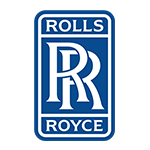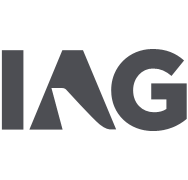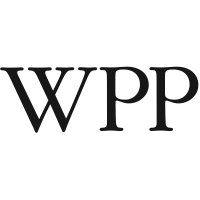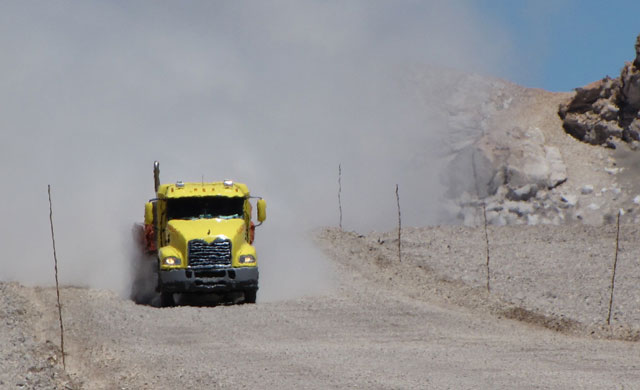London open: Stocks weaker after UK GDP shows unexpected rise

London stocks were in the red at the open on Wednesday, as investors digested an economic growth surprise in the UK, and looked towards this afternoon’s consumer inflation print out of the US.
At 0845 BST, the FTSE 100 was down 0.83% at 7,149.94, and the FTSE 250 was off 0.32% at 18,793.75.
“A relatively rare economic bright spot came in the form of the UK GDP reading, showing that the economy grew by 0.5% in May after contractions in March and April, and better than the zero growth which had been expected,” said Interactive Investor head of markets Richard Hunter.
“Nonetheless, economic data points cannot be taken in isolation, such that the number does little to change the overall economic dial for prospects in the UK.
“With sterling under pressure in part due to the strength of the dollar, the FTSE 250 fought bravely to eke out a marginal gain at the open, although the index remains down by 20% in the year to date.”
Hunter noted that the top-flight FTSE 100 also stumbled in early trade, in line with global markets.
“Sentiment remains fragile given the current backdrop, and early features included general pressure on financial stocks, while a number of broker downgrades had stock specific impact.
“The UK’s premier index is now down by 3% in the year to date, representing an outperformance relative to many of its global peers.
“The UK as a whole is still seen as being undemanding in terms of valuation, and while international interest has cooled of late, the possibility for further cherry picking cannot be entirely ruled out as investors continue in their search for stability and of course returns.”
On the data front, official data released before the open showed the UK economy growing faster-than-expected in May.
According to the Office for National Statistics, GDP grew by 0.5% in May, following a decline of 0.2% in April, which was revised up from an earlier estimate for a 0.3% fall.
Analysts had forecast a rise of just 0.1% for May.
In the three months to May, GDP rose by 0.4%, and by 3.5% in the year to May.
Despite the well-documented cost-of-living crisis, with inflation now at a 40-year high of 9.1%, services, production and construction all reported growth during the month.
Services output grew by 0.4%, boosted by strong demand for human health and work activities, which rose 2.1% following a large rise in GP appointments.
Output in consumer-facing services eased 0.1%, however, after retail trade fell 0.5%.
“May’s GDP data have not changed our expectations for a contraction in the second quarter,” said Gabriella Dickens, senior UK economist at Pantheon Macroeconomics.
“We estimate that the additional bank holiday for the Queen’s Jubilee, which will be treated as a special event by the ONS and thus will depress the seasonally adjusted data, will cause GDP to fall by around 1.5% month-to-month in June.
“In addition, weak consumer confidence suggests that people probably didn’t borrow enough, or cut their savings by enough, to maintain their real spending while their real incomes dropped.”
Dickens said amid all that, a recession still remained unlikely.
Central banks were also in focus overnight, after policymakers in both South Korea and New Zealand sated market expectations with 50-basis point hikes.
The Bank of Korea confirmed its highest rate rise since its current framework began in 1999, taking its benchmark rate to 2.25%.
Further south, the Reserve Bank of New Zealand delivered its sixth consecutive hike to take the official cash rate to 2.5%, while sticking to its guns with regard to plans for further rises.
In equities, shipping services group Clarkson was soaring after it said it now expected to report unaudited underlying pre-tax profits of no less than £42.0m for the six months ended 30 June.
It added that its first-half performance had been “strong” across all divisions, with its broking unit performing “particularly well”.
Property developer Countryside Partnerships was also in the green, after revealing that chairman John Martin had decided to resign from all his roles at the company with immediate effect.
Countryside said senior independent director Douglas Hurt will take over as chairman, while Amanda Burton will replace Hurt, effective immediately.
The FTSE 250-listed firm also reiterated its full-year financial adjusted operating profit guidance for the twelve months ending 30 September.
On the downside, commercial broadcaster ITV and telecoms behemoth BT Group were weaker after the competition watchdog launched a probe into potential cartel-like behaviour by a number of British sports broadcasters.
The Competition and Markets Authority said it believed there were “reasonable grounds” to suspect that ITV, as well as BT, Comcast-owned Sky, and Endeavour Group division IMG Media, may have broken competition rules with the purchase of freelance services in the UK.
“The investigation relates to the purchase by such companies of freelance services which support the production and broadcasting of sports content in the UK,” said the CMA.
Elsewhere, technology services firm Computacenter was slightly weaker after announcing the acquisition of US value-added reseller Business IT Source for an undisclosed sum.
Computacenter said that BITS’ existing leadership team would stay on to run the business as a separate operating unit within its US division, as part of an effort to maximise its growth opportunity.
JD Wetherspoon was also in negative territory, after it said sales in the first 11 weeks of its fourth quarter were 0.4% below the same pre-pandemic period in 2019 – an improvement compared to the prior quarter, when sales were down 4%.
The FTSE 250 pub operator said sales of spirits were up 4.4%, cocktails up 18.6%, food up 2.1%, hotel rooms up 8.4%, and fruit machines ahead 16.6%, while draught ales, lagers and ciders – historically the largest contributors to pub sales – were 8% below 2019.
Top 10 FTSE 100 Risers
| # | Name | Change Pct | Change | Cur Price | |
|---|---|---|---|---|---|
| 1 |  |
Johnson Matthey Plc | +5.65% | +106.50 | 1,991.50 |
| 2 |  |
Fresnillo Plc | +3.82% | +25.20 | 684.40 |
| 3 |  |
Carnival Plc | +1.98% | +13.20 | 680.20 |
| 4 |  |
Diageo Plc | +1.14% | +41.00 | 3,638.50 |
| 5 |  |
Barratt Developments Plc | +1.14% | +5.30 | 471.60 |
| 6 |  |
Rolls-royce Holdings Plc | +1.12% | +0.99 | 89.77 |
| 7 |  |
Next Plc | +1.11% | +70.00 | 6,370.00 |
| 8 |  |
Associated British Foods Plc | +0.82% | +13.00 | 1,600.50 |
| 9 |  |
Segro Plc | +0.79% | +8.00 | 1,024.50 |
| 10 |  |
Halma Plc | +0.74% | +16.00 | 2,177.00 |
Top 10 FTSE 100 Fallers
| # | Name | Change Pct | Change | Cur Price | |
|---|---|---|---|---|---|
| 1 |  |
International Consolidated Airlines Group S.a. | -3.06% | -3.38 | 107.04 |
| 2 |  |
Hikma Pharmaceuticals Plc | -2.67% | -45.50 | 1,661.50 |
| 3 |  |
Prudential Plc | -2.40% | -24.20 | 984.80 |
| 4 |  |
Wpp Plc | -2.36% | -18.80 | 776.40 |
| 5 |  |
Gsk Plc | -2.27% | -39.60 | 1,703.00 |
| 6 |  |
Astrazeneca Plc | -2.20% | -246.00 | 10,918.00 |
| 7 |  |
Easyjet Plc | -2.19% | -8.10 | 361.30 |
| 8 |  |
Mondi Plc | -2.15% | -32.00 | 1,457.50 |
| 9 |  |
Smith (ds) Plc | -2.09% | -6.00 | 281.50 |
| 10 |  |
Micro Focus International Plc | -2.01% | -5.60 | 273.10 |
US close: Stocks fall as PepsiCo kicks off earnings season
Wall Street trading ended Tuesday in negative territory, as global economic growth concerns remained in focus ahead of a potentially rough earnings season.
At the close, the Dow Jones Industrial Average was down 0.62% at 30,981.33, as the S&P 500 lost 0.92% to 3,818.80 and the Nasdaq Composite was off 0.95% at 11,264.73.
The Dow closed 192.51 points lower on Tuesday, piling onto losses recorded in the previous session as market participants braced for second quarter earnings and digested Covid-19 headlines coming out of China.
“While today has highlighted the declining consumer and investor mindset, this week marks the beginning of a period which focuses on the outlook from US businesses,” said IG senior market analyst Joshua Mahony.
“Rising interest rates have done little to lift bank valuations of late, and the expected downbeat outlook in the face of recession risks should keep that cap on the likes of JP Morgan and Morgan Stanley when they report on Thursday.”
On the macro front, the National Federation of Independent Business‘ small business optimism index fell to 89.5 in June, down from 93.1 in May for its lowest reading since January 2013.
It said 61% of small business owners surveyed said they expect business conditions to worsen over the next six months – the lowest level recorded in the survey’s 48-year history.
In the corporate space, PepsiCo was down 0.57% even after it raised its full-year revenue guidance after posting better-than-expected quarterly profits and revenue.
Clothing giant The Gap was 5.02% weaker after it announced chief executive Sonia Syngal would leave the struggling retailer after just over two years.
The company, which also owns the Banana Republic, Old Navy and Athleta labels, also warned investors that rising input costs would see the squeeze on margins continue.
Software companies were in focus, with ServiceNow tumbling 12.74% after CEO Bill McDermott warned of macroeconomic pressures and currency concerns.
Sector peers were also in the red, with Intuit down 4.15% and Salesforce losing 4.61%.
On the upside, Boeing ascended 7.42% after the commercial aircraft giant hit its highest monthly delivery figure in more than three years in June.
Wednesday newspaper round-up: Peace talks, UK GDP, Sunak, EDF, Heathrow, UK heatwave
Russia and Ukraine are set to hold their first talks with UN and Turkish officials aimed at breaking a months-long impasse over grain exports.
The four-way meeting in Istanbul comes as exports across the Black Sea continue to be blocked by Russian warships and sea mines Kyiv has laid to avert a feared amphibious assault. – The Guardian
UK production grew by 0.9% in May, driven by 1.4% growth in manufacturing and a 0.3% rise in electricity, gas, steam and air conditioning supply.
Construction output increased by 1.5% in May and is now at its highest level since monthly records began in 2010. – The Guardian
Rishi Sunak has vowed to run the economy like Margaret Thatcher if he becomes the next prime minister, telling Tory leadership rivals: “You have to earn what you spend”. Speaking to The Telegraph in his first campaign interview, the former chancellor likened Baroness Thatcher’s upbringing above her father’s grocery shop to his childhood helping in his mother’s pharmacy.
Countering claims that his refusal to promise immediate tax cuts shows he is not a true conservative, Mr Sunak said that, by prioritising inflation, he was following the Iron Lady’s economic approach more than his rivals. “We will cut taxes and we will do it responsibly,” he said. That’s my economic approach. I would describe it as common sense Thatcherism. I believe that’s what she would have done.” – The Telegraph
Emmanuel Macron will have to pay up to €10.0bn to fully nationalise nuclear power giant EDF. France’s economy ministry is poised to buy up the remaining 16% of the company not already owned by the state, which is expected to cost between €8.0bn and €10.0bn for the stake, according to Reuters.
The French government will have to buy out shareholders including Blackrock, Thornburg Investment Management, and Vanguard, and purchase €2.4bn of convertible bonds. Last week, France announced it would take EDF into full public ownership to secure “control of the production” of its energy supplies. – The Telegraph
Heathrow will cap passenger numbers at 100,000 a day over the peak summer season in an attempt to limit disruption at the airport. Britain’s largest airport said that it had ordered airlines to “stop selling summer tickets to limit the impact on passengers”.
The unprecedented cap will run until 12 September. Airlines had planned to operate flights with a daily capacity averaging 104,000 over the period, according to the airport. – The Times
Trains could be cancelled and journey times doubled as rail bosses prepare to introduce speed limits because of the hot weather. Roads might also be closed, and the NHS and other critical services are braced for disruption.
Temperatures reached 31.7C in Wisley, Surrey yesterday and weather forecasting models have suggested it is possible – although not likely – that temperatures could reach 40C in the UK next weekend. – The Times


 Hot Features
Hot Features











